
Anger Issues in Toddlers
8 min readWritten by Smita Srivastava


Isn’t raising toddlers full of surprises? You’ve likely observed your little one expressing intense emotions through crying, screaming, and even hitting on numerous occasions throughout their day. These outbursts are common manifestations of anger issues in toddlers. Often, they’re triggered by feelings of annoyance and helplessness in unfamiliar situations.
Additionally, toddlers may become frustrated when they are unable to accomplish tasks or obtain what they desire. As parents, it is important to understand and acknowledge these strong emotions and handle things with patience and understanding.
In This Article
- What Are The Signs of Anger in Toddlers?
- What Are The Causes of Anger in Toddlers?
- Common Triggers Leading to Anger Issues in Toddlers
- When is Anger in Toddlers Unhealthy?
- Common Mistakes Parents Make While Handling Angry Toddlers
- How to Manage Anger in Toddlers?
- Tips For Prevention of Anger in Toddlers
- When to Seek Help For Anger Issues in Your Toddler?
- FAQ’s
What Are The Signs of Anger in Toddlers?

Toddlers are emotionally fragile and immature. Thus, they may get upset and angry when they do not know how to handle problems or things do not end up the way they expected. As a result, they may throw tantrums in the form of screaming, hitting, kicking, or throwing objects randomly all over the place. Research reports have claimed that angry outbursts are common and 83.7% toddlers displayed some form of disturbing tantrums, though only 4.4% toddlers had severe behavioral issues (1).
At times, toddlers may also lash out physically by pushing others, or try to bite, just to show the intensity of their anger. As the tiny tot cannot express feelings in words, these behaviors are common. They have limited vocabulary to express their annoyances, and thus they end up throwing tantrums, greatly troubling parents. Some of the typical signs of anger that toddlers display when annoyed or frustrated includes-
- Extremes of shouting or screaming
- Intense crying
- Throwing objects
- Hitting people or objects
- Tensed facial expressions such as frowning, clenched fists, or flushed ears, and cheeks
- Irritability
- Refuses to listen to the parent
- Picks up fights with siblings or friends
- Struggles to calm down
- Clenching teeth
- Tensed muscles
What Are The Causes of Anger in Toddlers?
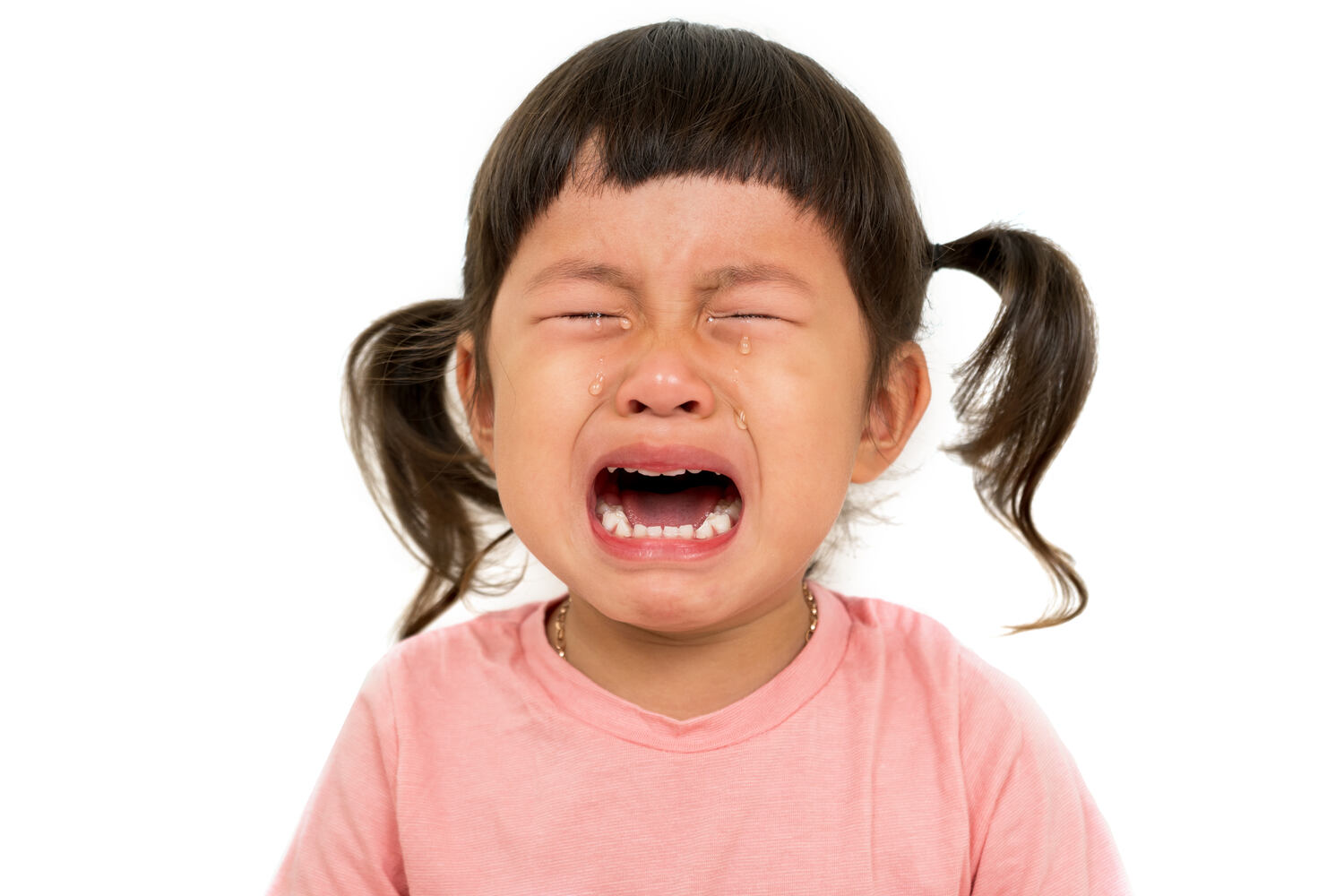
Increased irritability, fussiness, and tantrums can stem from their inability to clearly express discomfort. Any sort of physical discomfort such as hunger, pain, teething issues can also raise their temper. Study findings claim that toddlers with better language skill are less prone to show anger by 48 months as compared to those toddlers who struggled with learning and usage of words (2).
Some causes of anger in toddlers are-
- Physical tiredness
- Lack of ability to express strong feelings through words
- Changes in routine that are annoying
- Unmet needs such as hunger and thirst
- Observed angry outburst of parents and mimicking it later on
- Desires independence yet cannot resist parental control
- Illness can raise irritability in toddlers
- Strict parenting style can increase anger responses
- Co-occurring mental health issues such as ADHD, autism can lead to anger
Common Triggers Leading to Anger Issues in Toddlers
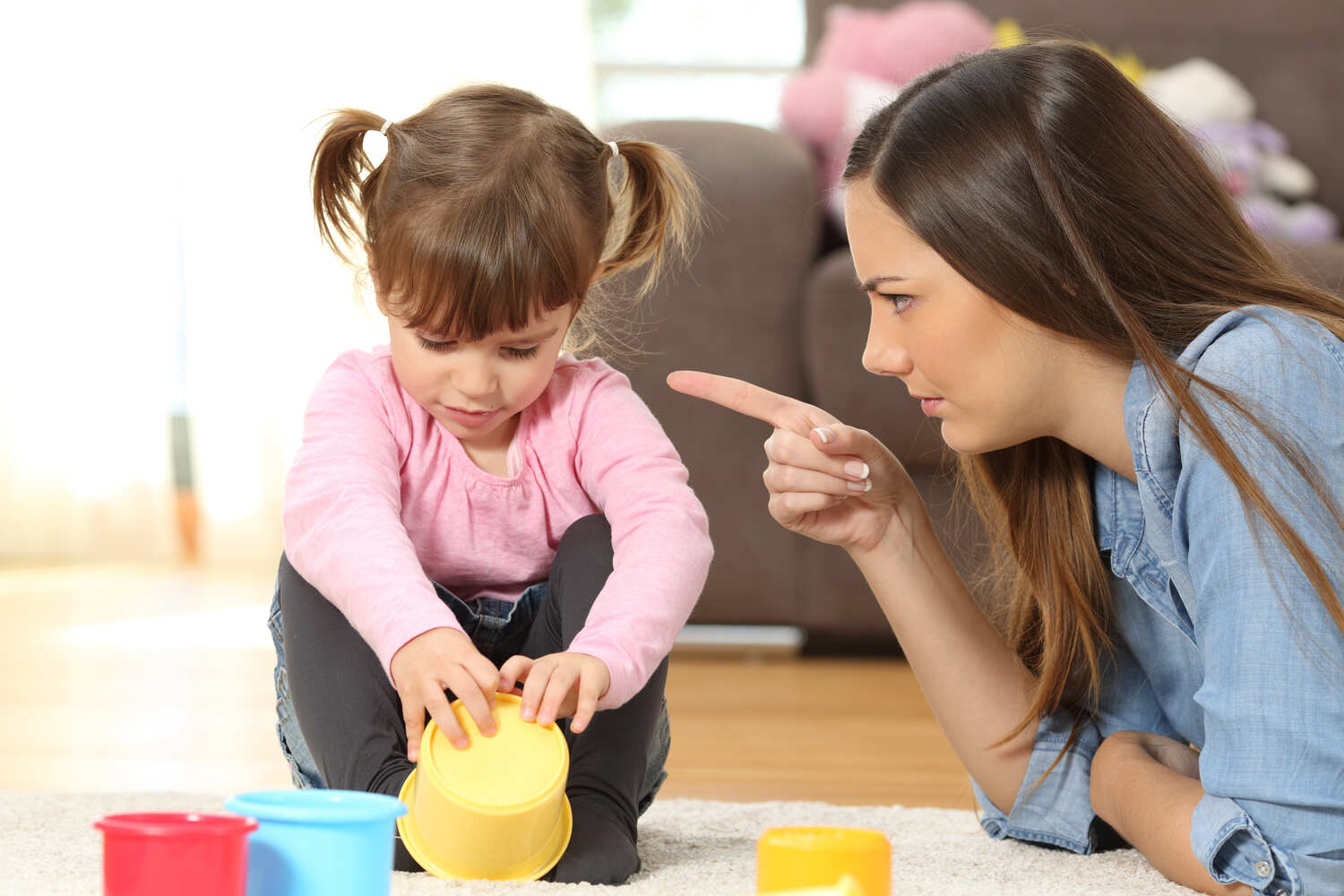
When trying to understand what makes a toddler angry, it is vital to note that your toddler’s angry outbursts could just be momentary. Some of the immediate triggers are-
- Disliking parental control
- Fights with playmates or siblings can trigger anger
- Engaged in play time but asked to do something else
- Someone taking away their lovable objects from them
- Parents quarreling can trigger anger
- Beating, slapping, spanking the toddler can raise their temper
- Shouting at toddler’s minute mistakes can annoy them
When is Anger in Toddlers Unhealthy?
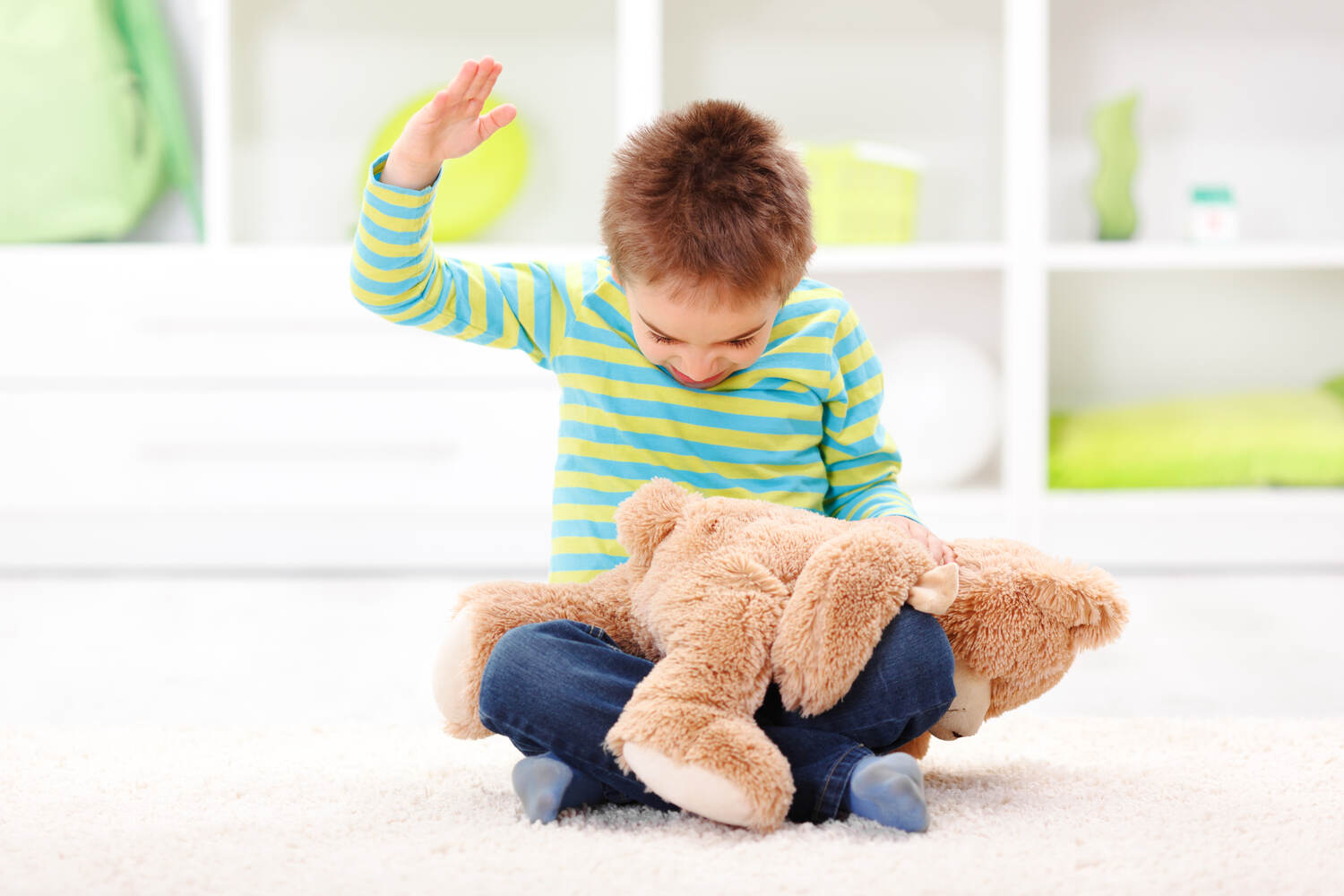
Research shows that 87% of 12-24 months old show anger at least once per day. Moreover, 5-7% toddlers in the age group of 1 to 3 years display anger issues that last for 15 minutes, three to four times in a week (3). These reports show how common the issue is. However, anger issues in toddlers can also turn unhealthy if it is persistent, uncontrollable, hurtful to others, and takes time to tame.
The red flags to note include-
- Excessive anger outbursts and tantrums that are prolonged
- Physical display of anger like fighting, kicking, throwing stuff on others
- Anger shown towards pets
- Toddler refuses to follow what the parent says
- Self-harming tendencies such as banging head on floor or objects out of anger
- Hitting peers while playing
- Anger marked by constant crying, screaming, and misbehavior
Common Mistakes Parents Make While Handling Angry Toddlers
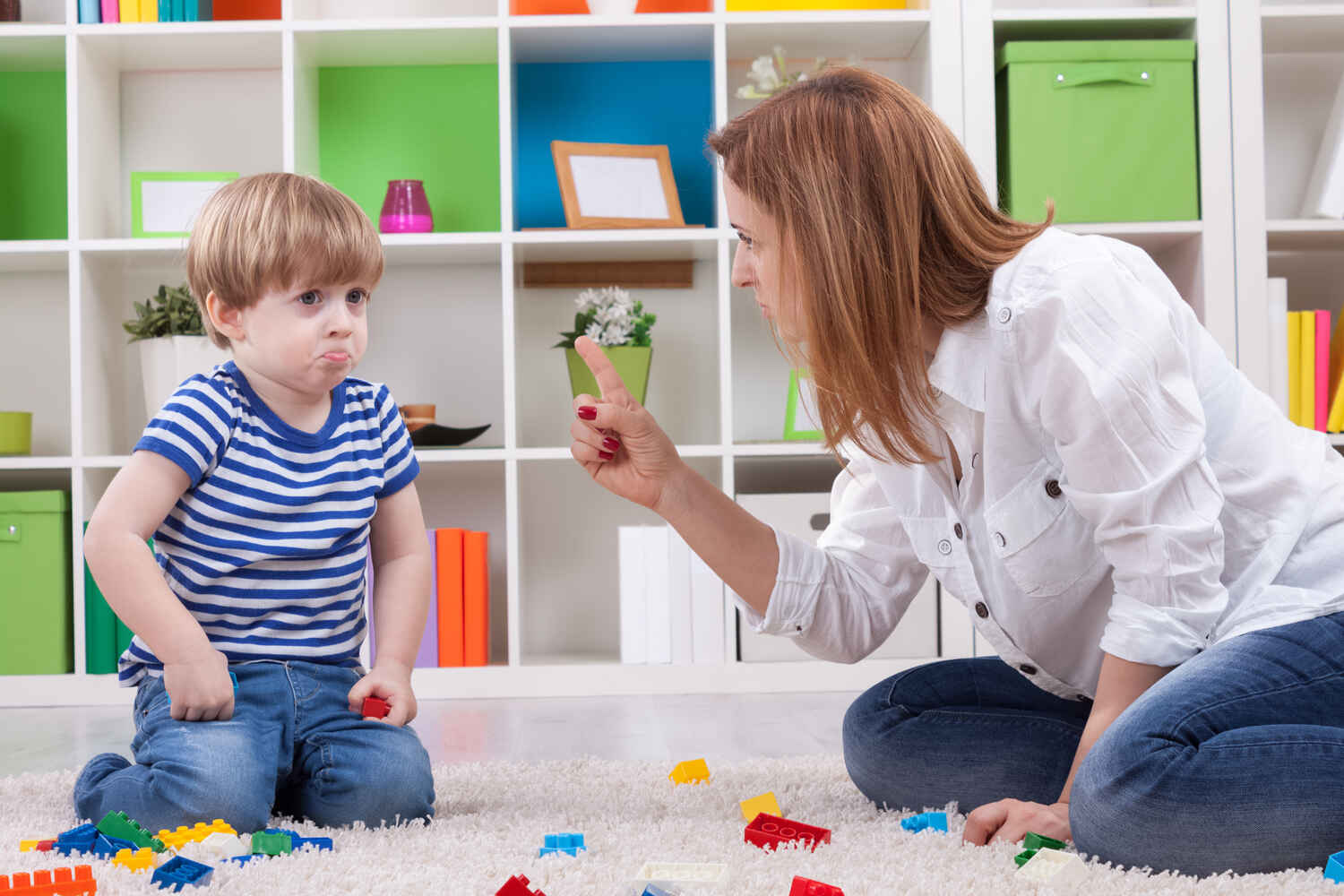
Now let us understand what not to do while handling an angry toddler –
- Never react with anger. Your toddler can imitate this all over again
- Avoid using spanking as a way to handle their anger. Unknowingly, you’re telling them to show annoyance by hitting others. Research indicates that spanking increase aggression in toddlers (4)
- Dismissing their anger is not the solution. Instead use words that assure them that they’re being heard and noticed. You can ask them “I see you’re upset. Can you tell me why? How can I help you, dear?”
- Respond calmly and stop overreacting by shouting or screaming yourself
- Attend to a toddler’s needs when they are displaying anger. Remember that tiny tots also show anger just to gather parent’s attention
- Sometimes toddlers act out because they’re hungry, sleepy, or overtired. So, look after their basic needs to keep them calm and hearty
How to Manage Anger in Toddlers?

Anger issues are common during toddlerhood and it may not be possible for you to manage all sorts of tantrums and meltdowns. Most anger issues get resolved as toddlers age. However, using some tips in daily life can actually help in reducing your toddler’s anger to limits.
1. Ignoring Initial Angry Spells
You can ignore the initial anger of your toddler and let it run its course for the time being, if it happens at home. However, if you are in a public place or driving a car, think of stopping by for some time till they calm down. Later on, you can ask them calmly about their reason for being upset and resolve the issue they’re facing.
2. Be Calm And Have Patience
Avoid yelling and shouting at them. Instead, maintain your cool and try to understand the reason behind their anger. If you show patience while dealing with them, they’ll model your peaceful nature. You’ll be able to control their defiant and aggressive behavior by encouraging them to do the same thing.
3. Avoid Giving in to Their Demands
Avoid giving in to their demands to stop the tantrum. Giving them what they want just reinforces the behavior, making future tantrums more likely. Instead, stay firm and calmly wait for the tantrum to pass.
4. Praise Their Good Efforts
When your toddler calms down, always praise their efforts and say a few words to make them feel special. In this way, you can encourage your toddler to maintain calm and stay away from tantrums. Help them express their feelings verbally and assure them that you’re going to resolve all their issues. Your tiny fellow feels heard and understood and overcomes anger instantly.
5. Use Distractions
When the tantrum starts, you need to nip it right away. For this, you can distract their attention from the source of annoyance to something else. Give them a picture book, or a favorite toy to pacify instantly. It works well because they shift focus to something more interesting than the tantrum spell.
6. Minimize Triggers
Identify triggers for your toddler’s anger and remove them from their routine. If tiredness is a trigger, ensure they get enough sleep. Keep meal times consistent to prevent hunger-induced irritability.
7. Talk And Interact With Toddler
Talk to your child calmly, at eye level and explain limits gently. Try doing this only after the tantrum calms. For older toddlers, ask them why they are upset and how you can help them. Use humor, like silly faces, to lighten moods. Always validate their feelings as true, so that they feel heard and accepted by you.
Tips For Prevention of Anger in Toddlers
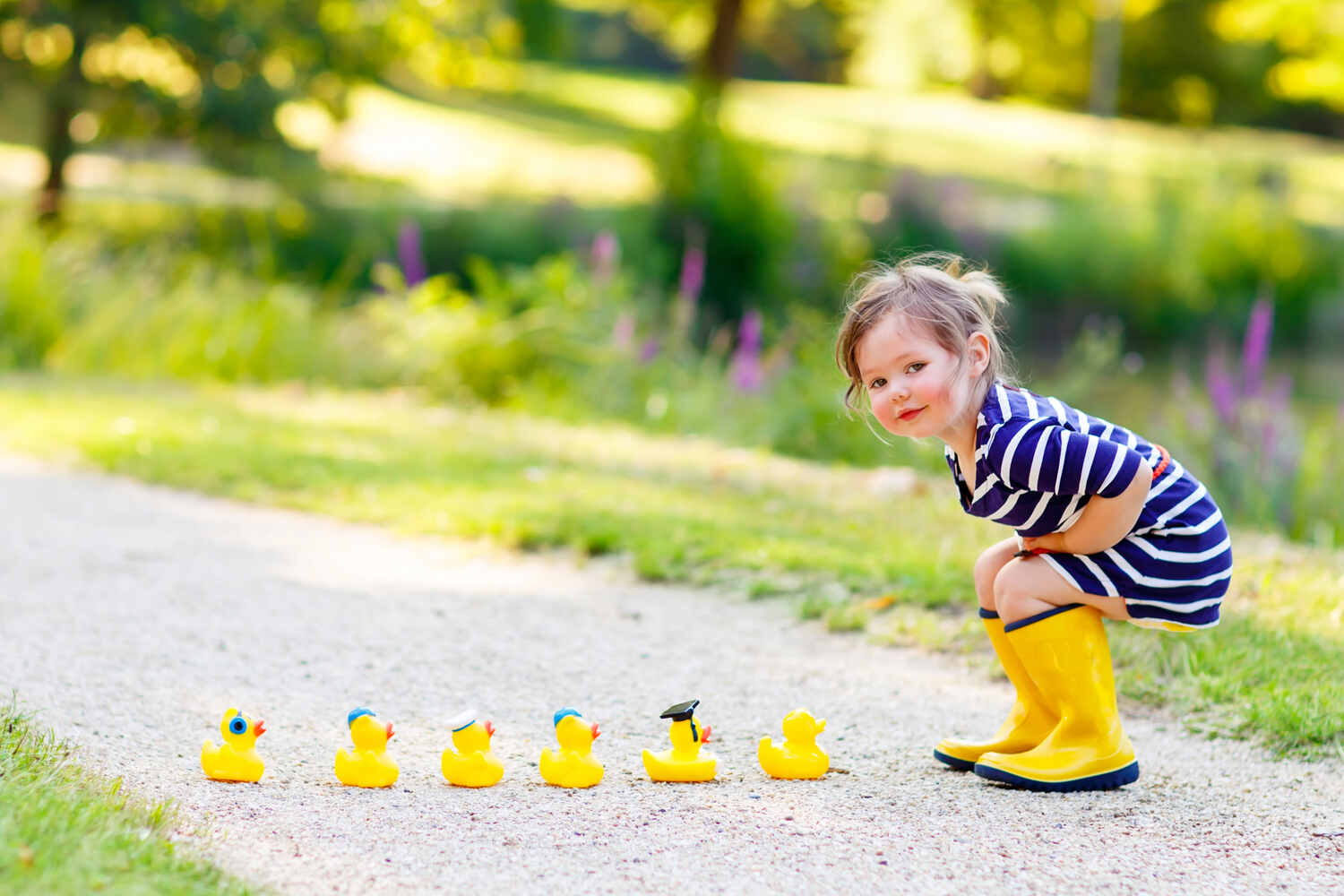
Sometimes it’s essential that you prevent the angry responses of your toddler so that the inner peace of your household is maintained.
- Prepare a routine and make them follow it thoroughly. With proper eating and sleep habits, your toddler’s mental ease will be maintained
- Encourage them to tell you why they’re upset without showing anger
- Offer opportunities for outdoor play, running, cycling, so that your toddler drains energy in desirable ways
- Teach deep breathing exercises and tell them to practice it whenever they’re upset
- Attend to their needs and make them feel noticed and accepted as they are
- Guide them to solve problems instead of screaming and shouting
- Appreciate good behavior by saying words that they like. Hugs and kisses can also act as incentives to layoff anger
When to Seek Help For Anger Issues in Your Toddler?
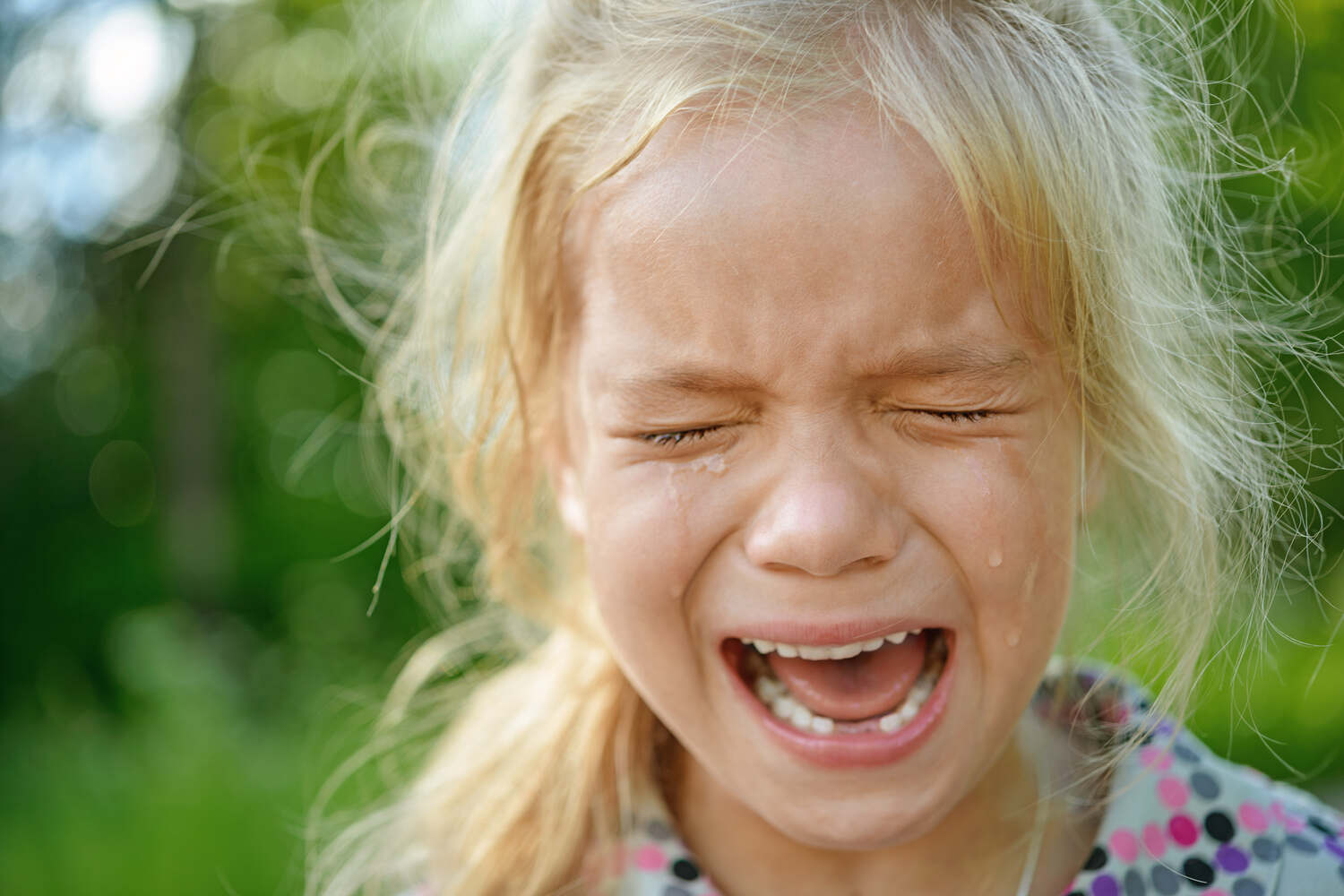
If your toddler occasionally throws tantrums, it’s a typical response that doesn’t need intervention. However, if these outbursts occur too often and intensely, it’s important to address them with greater attention. You should consult a doctor if your toddler shows-
- Displaying anger multiple times in a day
- When they’re too irritable to manage
- Their health is getting impacted due to screaming and crying
- They are about to harm themselves
- The angry responses last for a long time and by no means you’re able to soothe them
In a nutshell, attending to anger issues in toddlers is important for fostering good mental health and emotional control. By creating a loving atmosphere in the household, talking patiently with them, you as a parent can assist the tiny tots manage their feelings better. They will grow up as calm, emotionally-resilient kids.
FAQ’s
1. What is Angry Baby Syndrome?
Angry baby syndrome refers to a state of extreme stubbornness and irritability that toddlers may show. It also has signs such as extremes of crying and fussiness that is hard to manage.
2. Is it Normal For Toddlers to Have Anger Issues?
Yes, it is normal for toddlers to have anger issues as they are trying to assert their independence in an adult world. Moreover, toddlers are too immature to express their feelings clearly. So, their anger responses are often impulsive, intense and out of control. However, frequent anger in toddler needs to be concerned about.
3. How do I Control my Anger When my Toddler is Mad All The Time?
If you find your toddler mad all the time, you should practice patience, deep breathing, and stepping away from the situation for the time being, if possible. Managing your own anger provides a calm and supportive environment for your toddler to express their needs clearly.
References
- Temper Tantrums in Toddlers and Preschoolers: Longitudinal Associations with Adjustment Problems – [https://journals.lww.com/jrnldbp/fulltext/2022/09000/temper_tantrums_in_toddlers_and_preschoolers_.5.aspx]
- Longitudinal Relations Among Language Skills, Anger Expression, and Regulatory Strategies in Early Childhood – [https://www.ncbi.nlm.nih.gov/pmc/articles/PMC3620964/]
- Temper Tantrums – [https://www.ncbi.nlm.nih.gov/books/NBK544286/]
- Spanking and Child Development: We Know Enough Now To Stop Hitting Our Children – [https://www.ncbi.nlm.nih.gov/pmc/articles/PMC3768154/]

Smita Srivastava,MA (Mass Comm), BA (Mass Comm)
With a background in Mass media and journalism, Smita comes with rich and vast experience in content creation, curation, and editing. As a mom of a baby girl, she is an excellent candidate for writing and editing parenting and pregnancy content. The content she writes and edits is influenced by her own journey through pregnancy and motherhood. When not writing- She can be found curled up with a book. Or, bingeing on Netflix.Read more.
Responses (0)
Want curated content sharply tailored for your exact stage of parenting?
Related articles

Top 10 Preschools in Hyderabad For 2024 – 2025

Top 7 Preschools in Chennai For 2024-2025

Almond Powder For Toddlers

Onlooker Play – Why is it Importance and Top Ways to Encourage

Bad Breath in Toddlers – Causes, Home Remedies and Tips to Deal With

Toddlers Hitting Themselves – Why and How to Stop it?
Sponsored content
Discover great local businesses around you for your kids.
Get regular updates, great recommendations and other right stuff at the right time.





